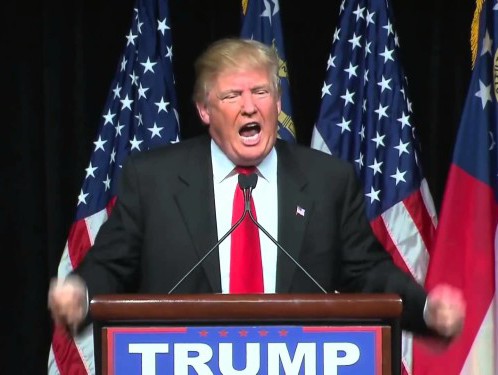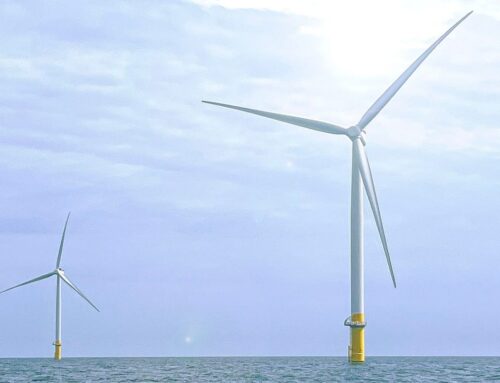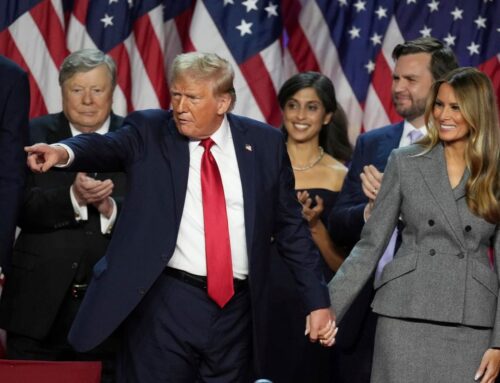Energy Transition, Climate Emergency Won’t Stop for Trump, Global Leaders Say
November 6, 2024

In the wake of Donald Trump’s astonishing political comeback Tuesday evening, international leaders say the chaos ahead in the United States won’t derail the energy transition or the effort to implement the Paris climate agreement.
“The result from this election will be seen as a major blow to global climate action, but it cannot and will not halt the changes under way to decarbonize the economy and meet the goals of the Paris Agreement,” said former UN climate secretary Christiana Figueres, one of the architects of the 2015 Paris deal. “Standing with oil and gas is the same as falling behind in a fast moving world. Clean energy technologies will continue to outcompete fossil fuels, not just because they are healthier, faster, cleaner, and more abundant, but because they undercut fossil fuels where they are at their weakest: their unsolvable volatility and inefficiency.”
- The climate news you need. Subscribe now to our engaging new weekly digest.
- You’ll receive exclusive, never-before-seen-content, distilled and delivered to your inbox every weekend.
- The Weekender: Succinct, solutions-focused, and designed with the discerning reader in mind.
Meanwhile, Figueres said, “the vital work happening in communities everywhere to regenerate our planet and societies will continue, imbued with a new, even more determined spirit today. Being here in South Africa for the Earthshot Prize makes clear that there is an antidote to doom and despair. It’s action on the ground, and it’s happening in all corners of the Earth.”
“We will work with the next U.S. administration wherever possible to strengthen the international rules-based order and deal with shared security challenges, including the climate crisis,” said Jennifer Morgan, Germany’s state secretary and special envoy for international climate action.
“For Germany and the EU, the transition to climate neutrality is a cornerstone of our future competitiveness,” Morgan added, just days after the European Union reported an 8% drop in greenhouse gas emissions in 2023, driven largely by its rapid shift to renewable power. “We therefore will work with all partners towards a level playing field in the race for green industries,” she said. “We will continue to implement our climate laws and work with international partners across all levels of government, civil society, and in the private sector on the swift and full implementation of the Paris Agreement.”
“Yes. It really sucks,” wrote former Canadian environment and climate minister Catherine McKenna, now CEO of Climate and Nature Solutions. “But we need to pick ourselves up, work together, and double down on climate action and activism including working much harder to bring regular people in the fight. Especially women and girls… to demand that their governments take action on climate.
U.S. climate hawks pointed out that the economy, particularly inflation, was a crucial factor in the U.S. vote—and that the country’s continuing dependence on fossil fuels is a major part of that problem. After the country’s annual inflation rate hit 9.1% in June, 2022, the Roosevelt Institute attributed one-third of the increase to fossil fuel prices. By contrast, the Biden-Harris administration’s clean energy policies were creating jobs across the country, a large share of them in the swing states that appear to have overwhelmingly handed their support to Trump last night.
“If Trump follows through with his threat to withdraw from the Paris Agreement, the biggest loser will be the United States,” said Climate Analytics CEO and former IPCC author Bill Hare. But “we have been there before—the U.S. withdrawal in the first Trump presidency did not cause the Agreement to collapse, as some pundits predicted.”
Hare added, however, that “unwinding U.S. domestic action under a Trump administration will damage efforts to limit warming to 1.5°C. The prospects of keeping open the 1.5°C goal will ultimately hinge on the level of action taken by all other countries in the next few years and also on what the U.S. does following the Trump presidency’s conclusion.”
In his first term, Trump rolled back dozens of environmental regulations, opened up new lands to oil and gas leasing, gutted environmental regulations on fossil fuel projects, but couldn’t completely stop a renewable energy surge brought on by Obama administration policies, U.S. organizations say. Now, climate leaders are once again talking about the municipal and state-level coalitions that will be needed to salvage U.S. momentum on the energy transition and local climate response.
“I sincerely hope the recent hurricanes in the United States have caused President Trump to rethink his belief that climate change will create ‘more oceanfront properties’,” said former Irish president Mary Robinson, former chair of The Elders. “It will only bring more death and devastation. It remains to be seen if he will once again isolate the U.S. by pulling out of the Paris agreement.”
And just like last time, Trump’s rise opens up an opportunity for his country’s geopolitical rivals to lead on climate response and the clean economy.
“Once again, China finds itself at a pivotal moment,” said Yao Zhe, global policy advisor at Greenpeace East Asia. “Expectations are high that China will join key nations in reassuring the world that climate action will continue,” beginning with a new Nationally Determined Contribution (NDC) under the Paris Agreement that “outlines clear actions to transition away from fossil fuels.”
Climate change “played a crucial role in stabilizing U.S.-China relations during the Biden time,” Yao Zhe added. “The Trump administration may undo some of the climate diplomacy gains of recent years, but U.S.-China climate cooperation will continue at the subnational level and among non-state actors.”
Search
RECENT PRESS RELEASES
Related Post




